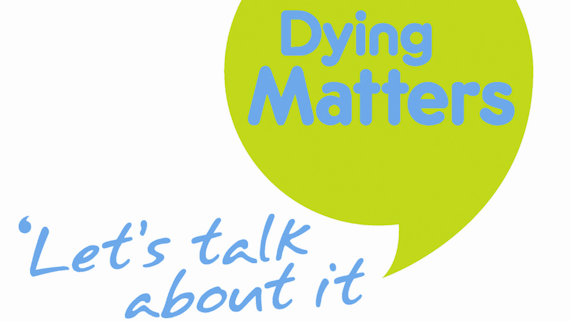Dying Matters
12 Mai 2016

Dr Emilie Whitaker reflects upon Dying Matters Awareness Week (9-15 May 2016)
The end of the twentieth century and the beginning of the twenty-first has witnessed a quiet revolution in the cultural politics of mortality. Art, exhibition, fiction, design, cabaret, dance and drama thrust back against the argument we have ‘sequestered’ death from everyday life. The success of exhibitions on working class commemoration and rituals (Death and the Working Class, The People’s History Museum, Manchester), the history of forensics (Forensics: the anatomy of crime, Wellcome Collection, London) and most recently Bristol Museum’s collection and programme Death:The Human Experience speaks to a reclaiming of the archaeological, anthropological and cultural in the contemporary intellectual life of the dead.
Coupled with this is the emergence of the online ‘pathography’, an interest in digital afterlives and concerns about the ‘social death’ for those at end of life. The cumulative effect of these trends is the idea of a ‘death movement’ with the liberal press on both sides of the Atlantic exclaiming “death is having a moment”.
A major development witnessed in Britain is the birth of the Death Café, which brings the living together to talk about death and dying. This led to the inaugural Cardiff University Death Café hosted by the School of Social Sciences last June as part of the Social Work summer programme. The aims of the Death Café dovetail with those of the Dying Matters Awareness week which takes place nationwide between the 9th-15th May 2016.
Reflecting on the Death Café, which will be running again on the 28th June 2016, people are surprisingly confident in talking about death and dying. It’s just that they need the right environment and some gentle encouragement to do so. It seemed that once the initial barrier was breached in an open and supportive manner, talking about death wasn’t nearly as difficult as you might think.
Students and staff talked at length about what they consider a ‘good death’ to be and how they would like to be remembered. Intimate stories and experiences were exchanged, personal fears aired and meanings shared. In the Café, there was a palpable catharsis as participants ‘thought out loud’.
In the evaluations of the event it became clear that talking about death and dying can not only prepare you on a practical level – it can also provide a vocabulary and set of motifs to discuss and support others. And not just when time is running out. The Dying Matters Awareness week takes this sentiment as its starting point – that together and with support everyone can engage in talking about and planning for end of life.
Building on the success of the death café, I am now working to devise a set of conversational cards to facilitate dialogue on death and dying – allowing people to explore their own wishes and needs around death. Once these are complete I hope to host a pop-up death café in the Glamorgan Building. Interviews with social work students are ongoing as part of a small project to explore the place of social work at end of life in a changing cultural and bio-ethical framework.
I have also begun to build a ‘necro-network’ of interested social work colleagues nationally who are keen to equip the social workers of tomorrow with a confident and sociologically-informed understanding of death and dying.
I am embarking upon a larger ethnographic study which considers ‘death on the margins’. In recent years a group of ‘end of life companions’ has emerged in response to the perceived failings of professionalised palliative care, the medicalised focus on the body and the neglect of the person and their wishes. This group are often referred to as ‘soul midwives’ whose rationale is to facilitate the ‘good death’ the person seeks. Soul midwives frequently align their work with that of the conventional midwife – planning for ‘delivery’, easing troubles and worries, engaging in embodied practices of breathing, touch, sound and smell to smooth the person’s holistic transition. They often invoke a ‘craft’ wisdom, the (gendered) heritage of ‘laying out’ and ‘delivery’ at end of life, of natural remedies and holistic therapy as core to their activity. This stands in contrast to the dominance of medicalised and institutionalised end of life practices and knowledge.
Informed by the work of Cardiff social science luminaries, Barbara Adam on temporality and Professor Paul Atkinson on the art of ethnography the project seeks to build on the history of the ‘deathwork’ ethnography whilst firmly situating it within a contemporary cultural frame. Within the context of an ageing population living with chronic and disabling diseases, the project draws attention to the social significance of the spiritual and affective dimensions of life at its limits.
With soul midwives as participants the ethnography examines other possibilities for thinking through the needs of people as they die, including imaginative approaches to care that emphasise craft, relationality and soul, rather than technology and the clinical problem of gaps made by bodies in deficit. Such entanglements with the humanities are inspired by Professor Jenny Kitzinger, an ESRC Impact winner at the School of Journalism, Media and Cultural Studies.
More information on the Dying Matters Awareness week please see http://www.dyingmatters.org/page/AwarenessWeek2016 and follow the Twitter account @DyingMatters.